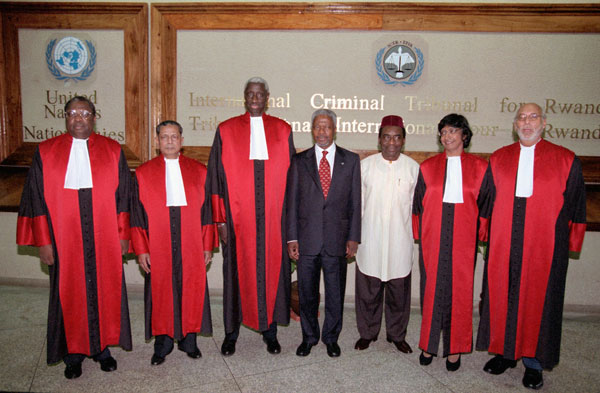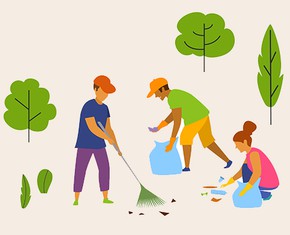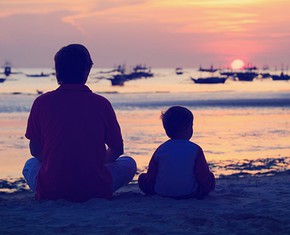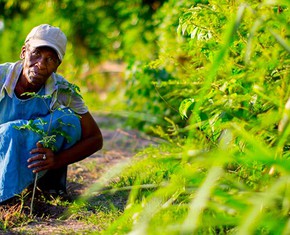The views expressed in our content reflect individual perspectives and do not represent the authoritative views of the Baha'i Faith.
Acceptance of the oneness of mankind is the first fundamental prerequisite for reorganization and administration of the world as one country, the home of humankind. Universal acceptance of this spiritual principle is essential to any successful attempt to establish world peace. It should therefore be universally proclaimed, taught in schools, and constantly asserted in every nation as preparation for the organic change in the structure of society which it implies. – The Universal House of Justice, The Promise of World Peace, October 1985, pp. 27, 29.
One of the most pressing and controversial social questions in Ireland—as in many other developed countries around the world—involves building a cohesive pluralist society where different ethnic, racial and national groups can live together in harmony and integrate peacefully into the wider community. These questions have begun to have great resonance for residents of first-world countries in the global North, because they raise complex and sometimes contentious issues of identity and integration.
This crucial theme highlighted a recent conference organized by the external affairs office of the Baha’i community of Ireland in August, titled “The New Irish as ’Us’ — Identity and Integration in Modern Ireland”. Two hundred people attended the one-day event, where speakers included a list of prominent figures from Ireland and abroad.
Patricia Rainsford, Director of the Baha’i external affairs office and one of the organizers of the event, reflected afterward about the purpose of the conference. Although discrimination, alienation, and social exclusion have been present in Irish culture towards some of its own populations, explained Ms. Rainsford, “Ireland has only been dealing with relatively large numbers of people from diverse global backgrounds for around 10 years.”
One of the ways the conference proposed to tackle this subject is to bring greater attention to the question of identity in Ireland.
A Canadian genocide and citizenship expert who helped to establish the International Criminal Tribunal for Rwanda after the 1994 genocide, Payam Akhavan, talked about the importance of recasting the Irish identity to reflect the growing consciousness of the oneness of humanity.

United Nation International Criminal Tribunal for Rwanda
“For the first time in human history we cannot define ourselves through otherness, rather we have to define ourselves inclusively,” said Professor Akhavan, who nevertheless acknowledged the difficulties of reframing identities.
Professor Akhavan joined a number of speakers, including Holocaust survivor Tomi Reichental and singer-songwriter Sharon Murphy. Mr. Reichental, who described his experience as a young boy in Bergen-Belsen concentration camp, stated that “genocide doesn’t begin in the gas chamber; it begins in the playground and the neighborhood.”
“We must all work to combat racism and discrimination and when we see wrong-doing we must be careful not to become bystanders,” he said.
Sharon Murphy’s impassioned presentation moved the audience to tears as she described her experiences growing up as a black child in the Ireland of the 1960’s and 70’s.
Ann O’Sullivan, a journalist and psychotherapist, also spoke at the unique event, exploring the consequences of exclusion for both individuals and society.
Karen McHugh from Doras Luimni, a human rights NGO that supports migrants and asylum-seekers, presented an overview of asylum seeking and how it differs from other forms of migration. Among the speakers, the audience heard the compelling voice of an Irish resident from Zimbabwe, Donnah Vuma, who is currently seeking asylum for herself and her three children. In her presentation, she described asylum as “a second chance, a chance to be safe and not in constant fear for yourself and your children.”
The conference, just one small part of the ongoing, worldwide Baha’i effort to construct a unified global community, built bridges of hope and understanding for its participants and for the larger Irish society. As the Baha’i teachings point out, the “discord and separation of the children of men” must one day give way to an integrative, worldwide human unity:
The ages of its infancy and childhood are past, never again to return, while the Great Age, the consummation of all ages, which must signalize the coming of age of the entire human race, is yet to come. The convulsions of this transitional and most turbulent period in the annals of humanity are the essential prerequisites, and herald the inevitable approach, of that Age of Ages, “the time of the end,” in which the folly and tumult of strife that has, since the dawn of history, blackened the annals of mankind, will have been finally transmuted into the wisdom and the tranquility of an undisturbed, a universal, and lasting peace, in which the discord and separation of the children of men will have given way to the worldwide reconciliation, and the complete unification of the divers elements that constitute human society.
This will indeed be the fitting climax of that process of integration which, starting with the family, the smallest unit in the scale of human organization, must, after having called successively into being the tribe, the city-state, and the nation, continue to operate until it culminates in the unification of the whole world, the final object and the crowning glory of human evolution on this planet. – Shoghi Effendi, The Promised Day is Come, pp. 117-118.
















Comments
Sign in or create an account
Continue with Googleor